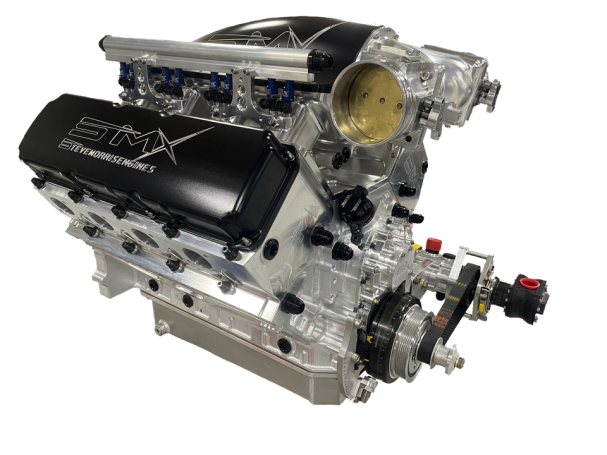Engines For Africa Offers Motors You Can Depend On
Engines For Africa Offers Motors You Can Depend On
Blog Article
A Full Guide to Picking the Right Engine for Your Task
Choosing the ideal engine for your task is a crucial decision that can considerably affect its general success. It is important to carefully define your job requires, review performance demands, and think about user-friendliness along with various other essential variables. Furthermore, recognizing the neighborhood assistance available and inspecting price effects can even more fine-tune your option. Each of these components plays a critical role in making certain that your picked engine not only satisfies instant goals however also lines up with long-lasting goals. As we check out these considerations, you might discover that the nuances of each aspect expose greater than initially prepared for.
Define Your Task Demands
Defining your project requires is an important action in selecting the ideal engine for effective implementation. A comprehensive understanding of your job's goals will lead you in identifying the functions and abilities called for from an engine. Begin by outlining the extent of your task, including the wanted functionality, target audience, and the certain end results you aim to attain.
Following, think about the technological needs that straighten with your task goals. This consists of reviewing the compatibility of the engine with existing systems, along with the programs languages and frameworks that will be utilized. Furthermore, analyze the degree of scalability required to accommodate future development or changes popular.
Budget restrictions additionally play an essential duty in specifying your job needs. Establish a clear financial framework to assist your decision-making procedure, ensuring that the engine selected fits within your budget plan while offering the essential capability.
Evaluate Performance Needs

Engines that sustain straight scaling are usually more effective for bigger applications. Additionally, evaluate the engine's performance under various problems, such as peak usage scenarios, to ensure it fulfills your reliability standards.
Think About Simplicity of Use
While technical specifications are important, the convenience of use of an engine can substantially affect the development procedure and general task success. An intuitive user interface, clear documentation, and structured operations can significantly decrease the learning curve for programmers, enabling them to concentrate on creativity and analytical instead than coming to grips with complex devices.
When reviewing an engine's ease of usage, think about the onboarding experience. A well-structured introduction, full with tutorials and example tasks, can promote a smoother transition for new users. Additionally, the quality and comprehensiveness of the engine's paperwork play a critical function; detailed guides and API recommendations can equip programmers to fix and carry out functions effectively.
Another element to consider is the engine's customization abilities. An engine that permits easy adjustments can be extra user-friendly, as programmers can tailor it Click This Link to fit their details needs without substantial problem. Last but not least, evaluate the operations integration with platforms and tools you currently make use of. A natural ecosystem can enhance efficiency and minimize friction during the development procedure. Ultimately, choosing an engine that focuses on ease of use can bring about a more efficient and enjoyable development experience.
Assess Neighborhood and Assistance
The stamina of an engine's neighborhood and support network can significantly influence a programmer's experience and success. A dynamic area typically indicates a wide range of shared knowledge, resources, and troubleshooting assistance that can enhance your job's development process. When assessing an engine, take into consideration the size and activity degree of its neighborhood. Bigger areas normally offer more online forums, tutorials, and third-party plugins, allowing developers to locate options extra effectively.
In addition, assess the availability of official support networks. Reputable documentation, receptive customer assistance, and normal updates are crucial for attending to technical problems and keeping your project on course. Engines For Africa. Energetic neighborhoods also promote partnership, offering chances for networking and responses, which can be very useful, specifically for independent designers or little teams
Additionally, investigate the visibility of community-run occasions, such as meetups or hackathons. These celebrations can enhance your understanding of the engine while connecting you with prospective partners and knowledgeable users. In recap, a robust neighborhood and support group not only simplify growth yet also develop an atmosphere for finding out and advancement, eventually enhancing the likelihood of your job's success.
Compare Price and Licensing Alternatives
Budget plan considerations play an important role in selecting the best engine for your job, as the expense and licensing options can significantly impact both temporary expenditures and long-lasting viability. Engines For Africa. Different engines provide differing prices structures, which can consist of single acquisition costs, registration versions, or revenue-sharing agreements based upon your task's profits

Accrediting alternatives additionally differ significantly. Some engines are open-source, offering adaptability and community-driven assistance, while others might need proprietary licenses that restrict usage and circulation. Comprehending the effects of each licensing design is crucial, as it impacts ownership rights, future scalability, and prospective lawful commitments.
Verdict
Finally, selecting the appropriate engine for a project requires a thorough analysis of specified project requirements, performance requirements, convenience of use, area assistance, and cost considerations. By methodically addressing these crucial factors, decision-makers can make certain alignment with both future and existing project demands. here A well-informed choice eventually improves the likelihood of task success, making it possible for reliable resource allocation and maximizing possible results within the specified monetary constraints.
Choosing the ideal engine for your job is a vital decision that can considerably influence its total success.Defining your job requires is an important action in choosing the proper engine for successful execution. A comprehensive understanding of your job's purposes will lead you in identifying the capabilities and functions needed from an engine.When you have a clear understanding of your project requires, the following action is to review the efficiency requirements of the engine.In final thought, selecting the appropriate engine for a job necessitates an extensive examination of defined job demands, performance needs, convenience of use, community assistance, and cost considerations.
Report this page